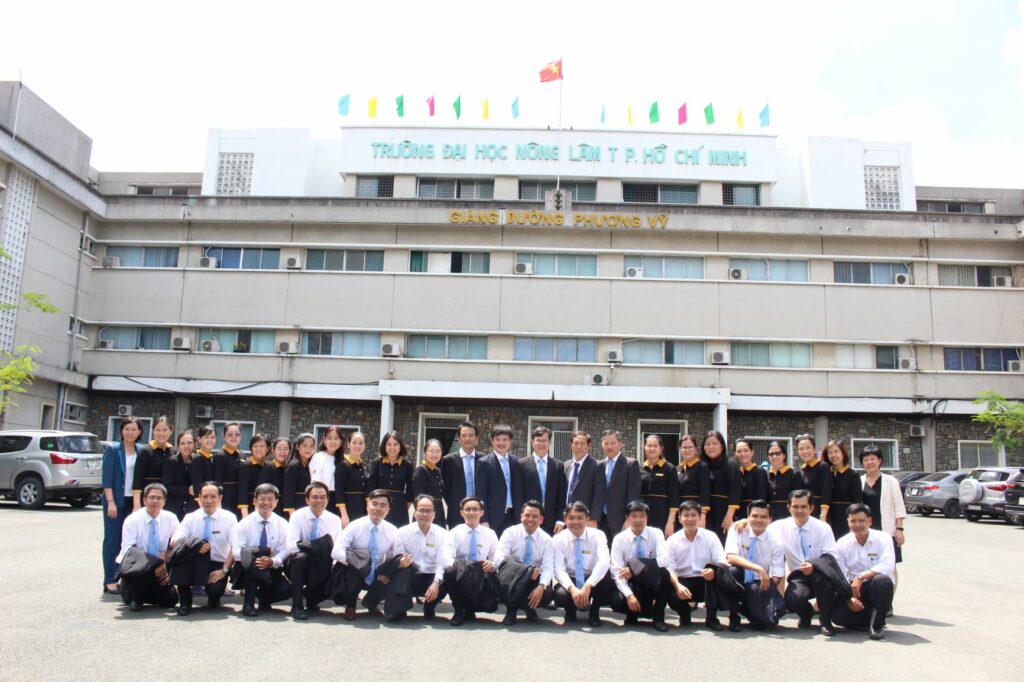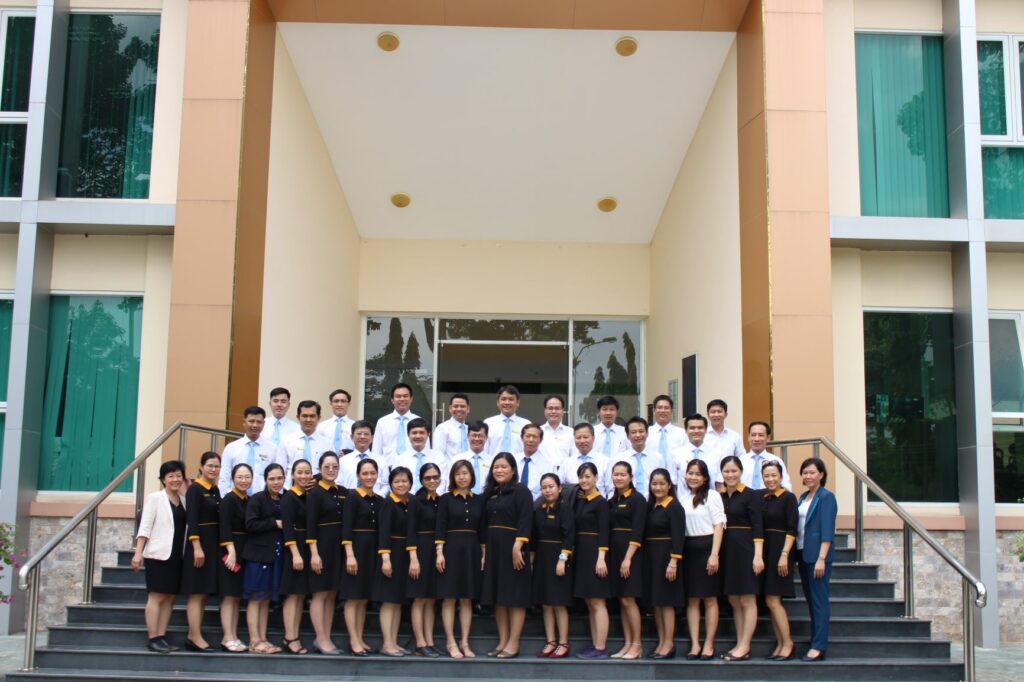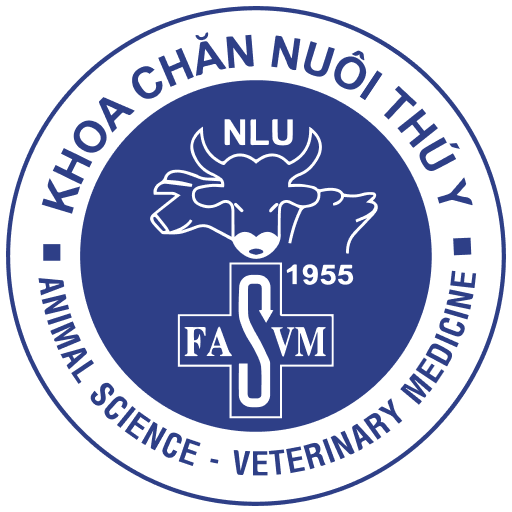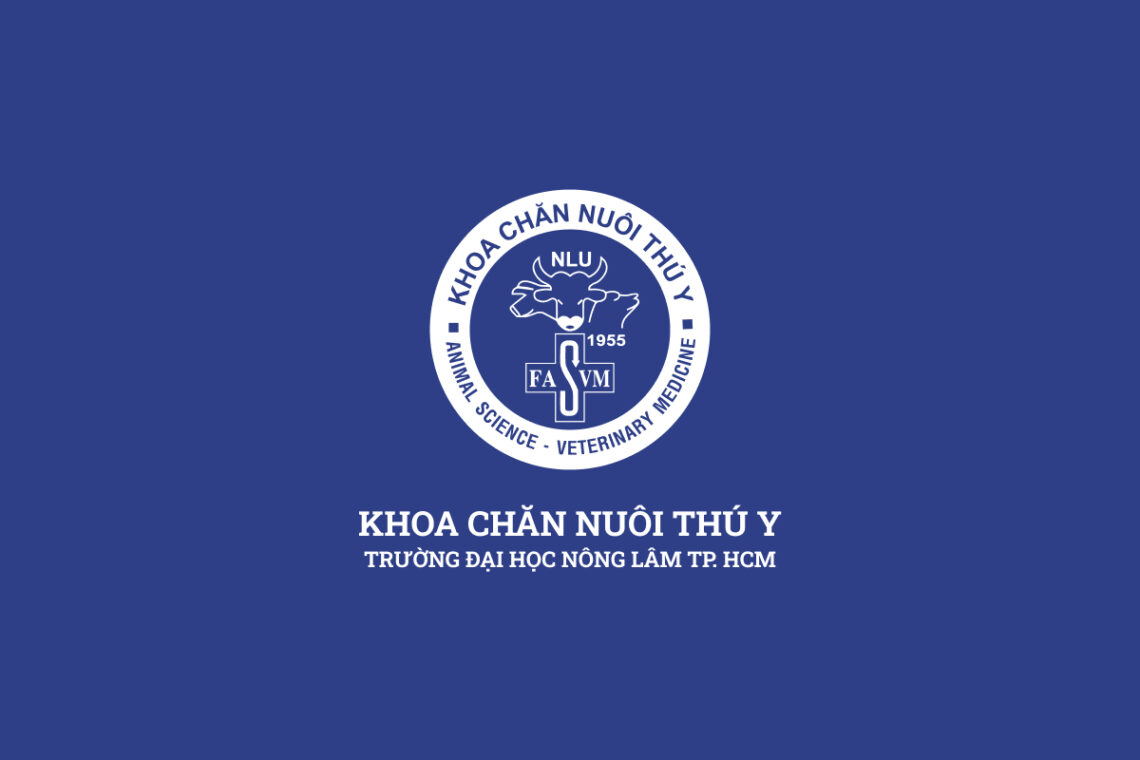The faculty of Animal Science And Veterinary Medicine was established in 1955. The goal of the faculty is to train generations of veterinarians and B.S in animal husbandry, who are well-qualified at the undergraduate level, and masters as well as PhDs, who have abilities to undertake intensive researches at the graduate level. Through over 60 years of operation, the Faculty has trained thousands of veterinarians and B.S in animal husbandry and in both regular and work-study systems, as well as many masters and Ph. Ds, who currently working in institutes, universities, state agencies, enterprises, manufacturing companies, farms, … throughout the country. Since 2010, with a permission from the Ministry of Education and Training, the Faculty has been in collaboration with the Department of Veterinary Medicine, University of Queensland, Australia – to train the veterinary students under the advanced program. The Advanced Curriculum is designed to be 80% identical to that of the collaborator.

Currently, the faculty consists of 56 staff members, of which 48 are teaching staffs including 12 associate professors, 15 with doctoral degrees and 20 with master degrees. The Faculty offers undergraduate, master, and doctoral degrees in both Animal Husbandry and Veterinary Science. In addition, the faculty has a close relationship with universities, research institutes, state agencies as well as production establishments and enterprises throughout the country. The Faculty is also a partner in many collaborative programs, exchanges of research with a number of international organizations such as SIDA SAREC of Sweden; Lyons Veterinary College, Toulouse, Nantes, France; ACIAR, University of Queensland, Australia; FAO organization; UNDP and many short-term cooperation programs with universities and research institutes of the United States, Netherlands, Australia, Thailand, Philippines, Malaysia, etc.

The Faculty has practical researches that have been completed and transferred to production such as production and application of leaf powder in animal feed; production of vitamin-mineral premixes, supplements used in animal feeds; survey and selection, application of breeding strategies of pig; application of modern methods to diagnose and treat diseases of cattle and poultry; design and install bio-biogas bags for domestic use to minimize environmental pollution and save fuel; applying IT to livestock management and composing optimal feed formulas; Establishing livestock models in sustainable farming systems … These studies have also been published at scientific conferences and/or books and textbooks for animal health as well as the transfer of science and technology into production practices.


